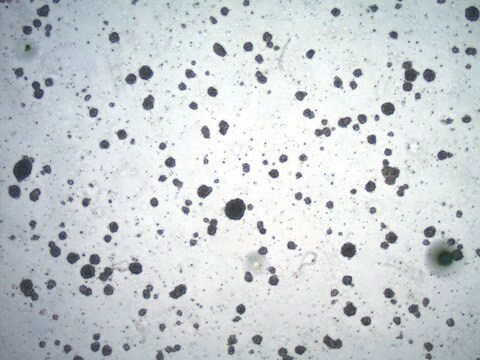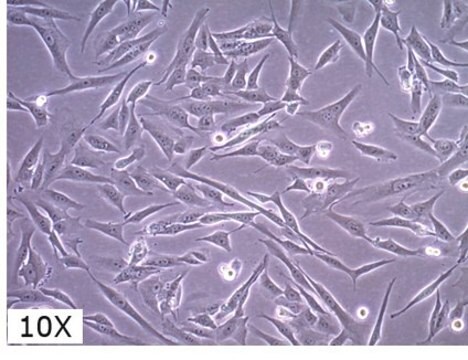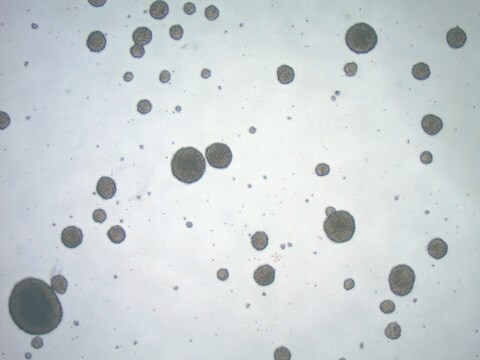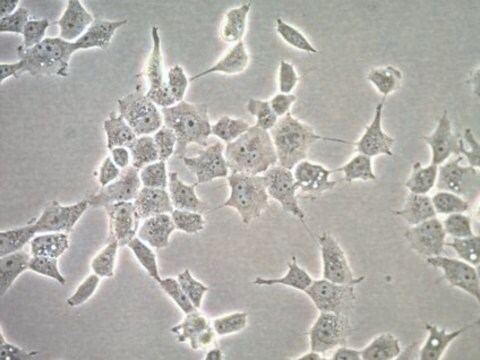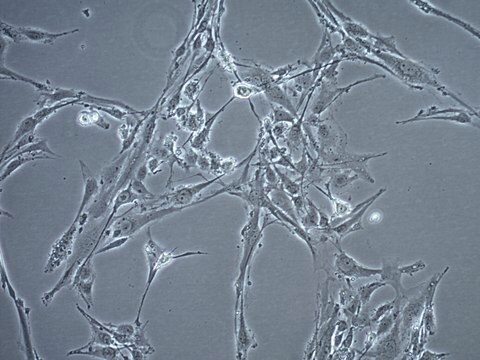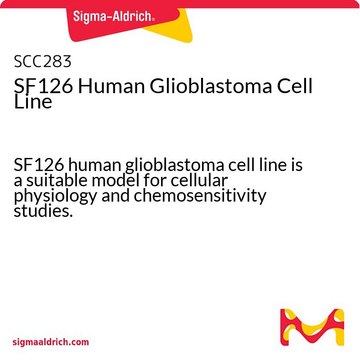SCC126M
SF7761 Human DIPG H3.3-K27M Cell Line
Human
Synonym(s):
Diffuse intrinsic pontine glioma cells
About This Item
Recommended Products
product name
SF7761 Human DIPG H3.3-K27M Cell Line, SF7761 pediatric diffuse intrinsic pontine glioma (DIPG) cell line harbors the histone H3.3 Lys 27-to-methionine (K27M) mutation and can support research and drug development efforts targeting DIPG.
biological source
human
Quality Level
technique(s)
cell culture | mammalian: suitable
General description
A somatic mutation of histone H3.3 resulting in a lysine 27 to methionine substitution (H3.3K27M) occurs in 60% of DIPG . In H3.3K27M DIPG patient samples, levels of H3K27 dimethylation (H3K27me2) and trimethylation (H3K27me3) are reduced globally. Expression of H3.3K27M was also shown to be associated with increased levels of H3K27 acetylation (H3K27ac) and recruitment of bromodomain proteins at sites of active transcription . These epigenetic changes are thought to be important factors driving DIPG oncogenesis
IMPORTANT NOTE: SF7761 are grown as neurospheres in suspension culture. Neurospheres are to be passaged using gentle mechanical trituration when they reach diameters of 200-500 um or through enzymatic dissociation.
Cell Line Description
Application
Cancer
Oncology
Quality
• Cells are tested negative for HPV-16, HPV-18, Hepatitis A, C, Herpesvirus type 6, 7, 8 and HIV-1 & 2 viruses by PCR.
• Cells are negative for mycoplasma contamination.
• Each lot of cells is genotyped by STR analysis to verify the unique identity of the cell line.
Storage and Stability
Storage Class Code
12 - Non Combustible Liquids
WGK
WGK 2
Flash Point(F)
Not applicable
Flash Point(C)
Not applicable
Certificates of Analysis (COA)
Search for Certificates of Analysis (COA) by entering the products Lot/Batch Number. Lot and Batch Numbers can be found on a product’s label following the words ‘Lot’ or ‘Batch’.
Already Own This Product?
Find documentation for the products that you have recently purchased in the Document Library.
Our team of scientists has experience in all areas of research including Life Science, Material Science, Chemical Synthesis, Chromatography, Analytical and many others.
Contact Technical Service